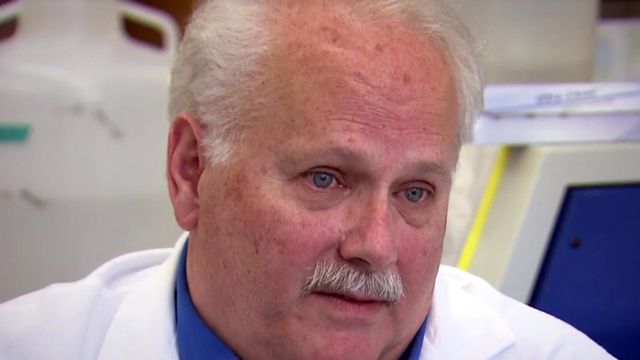UNC researchers have studied coronavirus for years, now working on possible treatment
A new strain of coronavirus is spreading faster than anticipated, with at least 80 deaths and thousands of people sickened since the outbreak began in Wuhan, China. The answer to fighting it could be in the Triangle.
Posted — UpdatedThe answer to fighting it could be in the Triangle.
Researchers at the Gillings School of Global Public Health at the University of North Carolina at Chapel Hill have been working for years on the same family of viruses.
Generally speaking, seasonal flu is still a much more common threat than this coronavirus, said Ralph Baric, an epidemiology professor at the Gillings School. But the reason the new virus is so concerning is that it’s much more likely to be deadly than the flu – fatal for about one in 25 people versus one in 1,000 for the flu.
Baric has done research on coronaviruses in Wuhan, and about five years ago, his team found that bats in Wuhan carry a variety of these viruses that could pose a risk to public health, including the virus causing the current outbreak.
"About 30 percent require intensive care with ventilators, but some patients have mild diseases," Baric said. "They will get sick, they will cough. They will have clinical symptoms, and they can spread."
Chinese health officials say the virus can be spread before people even know they’re sick, which can be as long as 12 days after exposure.
"That’s much more like flu or measles," he said. "If that’s the case, then public health intervention strategies will have a very difficult time controlling the spread of the virus globally."
Now, he and his colleagues are studying two antiviral drugs they think could help infected patients fight off the disease.
Americans don’t need to be overly alarmed about the new coronavirus yet, Baric said, but everyone needs to be aware, especially people who have traveled to Asia recently or have been around someone who has. The coronavirus symptoms are very similar to the flu – dry cough, fever, aches and trouble breathing.
"If they’re symptomatic, they need to call the hospital or their doctor before they go see them so they have time to put on masks and prepare, so they can say, 'Come in through this door so you don’t go through the waiting room with other patients,'" he said.
Related Topics
• Credits
Copyright 2024 by Capitol Broadcasting Company. All rights reserved. This material may not be published, broadcast, rewritten or redistributed.





